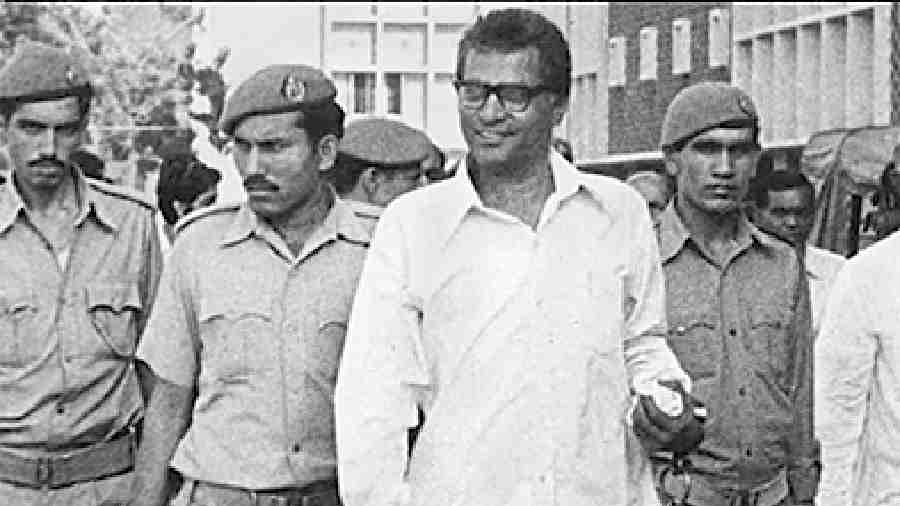Book: The life and times of George Fernandes
Author: Rahul Ramagundam
Publisher: Allen
Price: Rs. 799
When 19-year-old George Fernandes associated himself with the Socialist Party in 1949 in Mangalore, he was initially given the charge of relatively smaller workers’ unions of the town. The teenager’s growing enchantment with the socialist movement, however, incurred the wrath of his father. As Rahul Ramagundam observes, “Trade union work across the world was a communist activity, which was anti-religion and therefore anathema to a Catholic family like his. And from that point on, the disagreements became unbearable and led eventually to George’s ouster from home.”
Ramagundam’s reconstruction and lucid narration of such well-researched anecdotes engage readers with this new biography of George Fernandes, a fiery trade union leader, socialist, and an immensely successful politician for more than six decades. At the very outset, Ramagundam sets out the purpose of his endeavour: “the book is a delineation of processes that define Indian politics.” Simultaneously, it tries to delve “deep into the evolution of India that George lived in and worked for”. Fernandes’s political journey was one of extreme struggle, strength, endurance and unpredictability. Yet, as this biographer insists, his “power hadn’t been drawn from electoral victories, but from the non-electoral arena, but this, apparently, was scarcely appreciated”. What perhaps sets aside Fernandes’s political activism is his passionate commitment to whatever cause he pursued. Be it salvaging the rights of Bombay’s dock and municipal labourers, emerging as a giant killer of the Samyukta Socialist Party by defeating the heavyweight opponent, S.K. Patil (from Bombay South), in 1967, being instrumental in bringing the entire country to a grinding halt by organising the All India Railway Strike (1974), evading arrest and prosecution by going underground while resisting Indira Gandhi’s Emergency (1975), or silently battling Alzheimer’s in his later life Fernandes remained unfazed, taking stiff challenges in his stride.
Ramagundam strikes a fine balance between Fernandes’s private and public worlds. For instance, the chapter, “Stepping Up”, explores the complexities ailing George’s marital life that ultimately led to the estrangement of his wife, Leila Kabir. Ramagundam observes that the marriage failed to make any “difference to his schedule and failed to domesticate him”. Leila “soon began to feel lonely as he moved from one place to another at a frantic pace, and George began to drift, unable to find ‘purpose’ in the woman he had married.” George’s hectic involvement in political activities often left Leila “angry, sulking and complaining” to her friends. The section titled “The Dogged Years” captures the “permanent rupture” in the lives of the two couples concerned: George and Leila Fernandes on the one hand and Jaya and Ashok Jaitly on the other.
Notwithstanding his troubled personal life, Fernandes essayed a string of impressive electoral victories in his political career. His Samata Party played a significant role in the formation of the largest and most successful non-Congress coalition government at the Centre through the National Democratic Alliance. Although Fernandes left his unique mark in each of his ministerial tenures, ranging from industries, railways and defence, his late political career was dogged by controversies. The chapter, “They Hate my Guts”, closely traces the impact of Tehelka’s sting operation — Operation West End — on Fernandes’s political career.
In spite of these allegations, Fernandes’s social and political activism remains extremely relevant. The legacy of his activism is not only pertinent today but deeply inspirational. His humble origins were not a hindrance to his altruism. He remained firmly rooted in his path of resistance. Ramagundam aptly sums up his political resilience thus: “The pedigreed hated him. The plebeians felt jealous at his powerful expression of their predicament with a perspective they lacked.”











